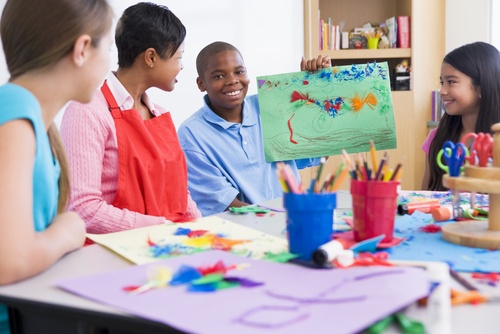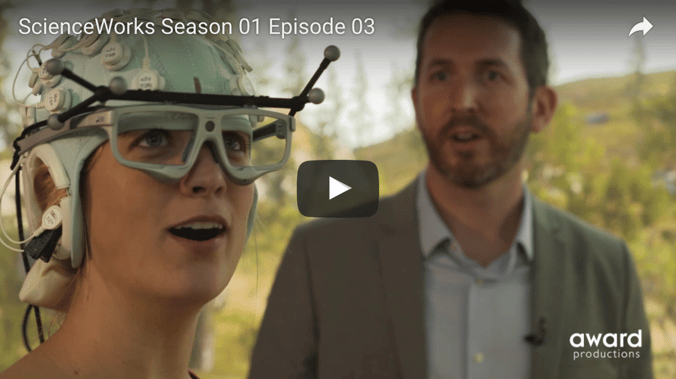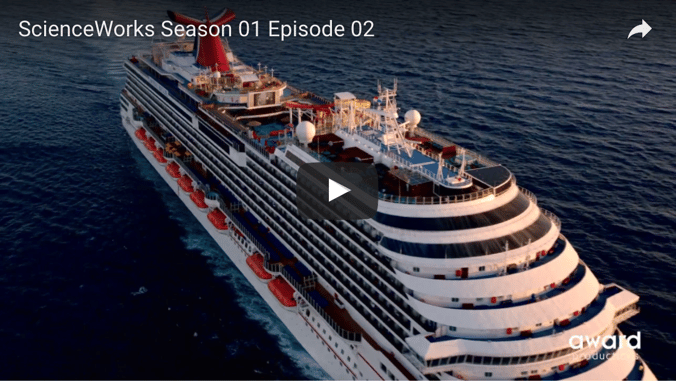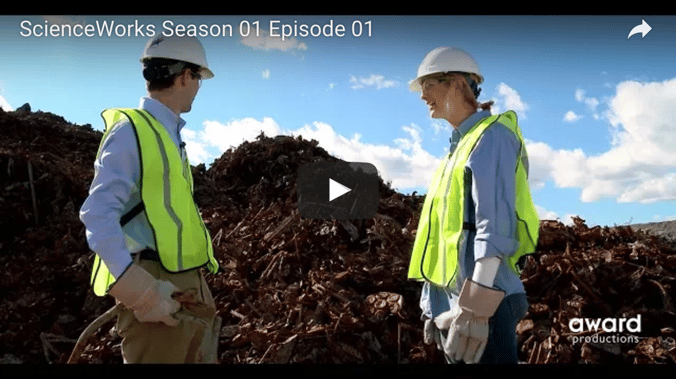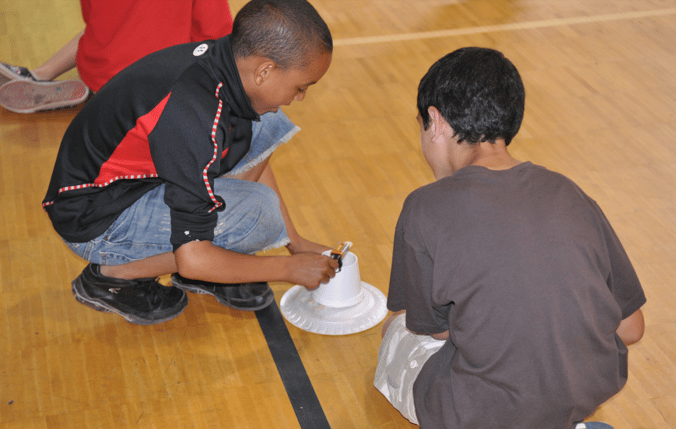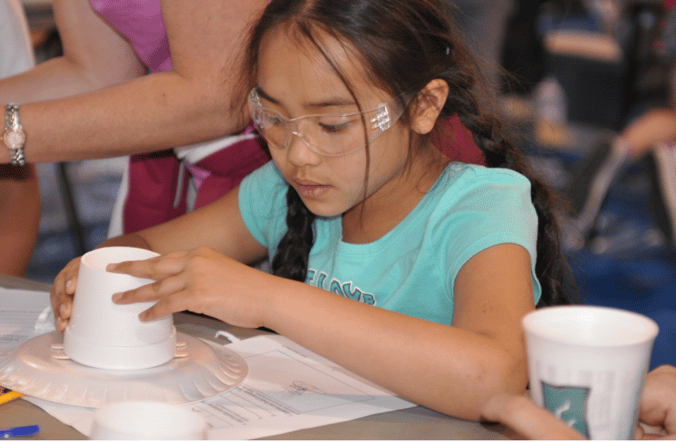Francis Vigeant
“Growing up, I wanted to be an inventor, solving problems that would help people have better lives. Every day at KnowAtom is an opportunity to invent solutions that give thousands of students and teachers a better experience doing science, engineering, technology, and math (STEM). Providing educators with professional satisfaction and students with the opportunity to understand the world we live in is my way of helping people have better lives.”
As a high school math teacher, Vigeant asked himself a simple question: How can I take the knowledge our students need and make it matter to them? His answer was to create KnowAtom, building its core architecture and platform alignment around the idea of making science, engineering, and math relevant.
Vigeant has taught science, engineering, and mathematics to kindergarten through twelfth-grade students in a variety of learning environments, ranging from college prep and honors classrooms to self-contained, team-taught, and inclusion settings. His focus on scientific and engineering process pedagogy and practice has helped schools become leaders in science education, based on common assessment programs. Vigeant is a strong believer in empowering professional teachers and has created Professional Learning Community models for large urban districts.
Vigeant’s achievements have been recognized by the American Federation of Teachers’ publication, The Advocate, in which he was profiled as an up-and-coming educational innovator. He is a presenter at the National Science Teachers Association National Conference, Massachusetts Association of Science Teachers, and Massachusetts Technology Education/Engineering Collaborative. Vigeant serves on several STEM-related boards focused on creating opportunities for students and teachers from traditionally underserved communities. He is a graduate of Gordon College.
The Next Generation Science Standards (NGSS) are changing the K-12 science classroom. Memorizing facts and recalling demonstrations aren't enough under these new standards.
Classrooms now need to focus on engaging students in the practices of science and engineering, teaching students to analyze, evaluate, problem-solve, and create – facilitating the development of higher order thinking skills through STEM experiences.
Continue reading
Topics:
Next Generation Science Standards
Did you know that the Next Generation Science Standards have applications in art?
While including the arts with science, technology, engineering, and mathematics (STEAM) may seem counterintuitive, the fact is that at their core, STEM and art have higher order thinking in common. STEAM learning is about creativity – discovery and invention – as well as analysis, communication, and critical thinking, all of which are essential to the creation and appreciation of art.
Continue reading
Topics:
STEM,
STEAM,
STEAM Curriculum
Summer is winding down, which means that most educators are back in the classroom.
I’ve been meeting with STEM teachers and curriculum planners about using KnowAtom in their classrooms. It has been so inspiring watching all of you dedicated educators as you prepare for a new year of engaging students in the creative, analytic, and evaluative forum that is science education.
Continue reading
Topics:
Next Generation Science Standards,
KnowAtom Science Curriculum,
Middle School Science Curriculum,
Three-Dimensional Learning
Did you know there are many aspects of the Army and Navy that use science, math, and engineering to develop new technologies? We explore some really fun careers with the military that don’t involve missiles.
Continue reading
Topics:
Science Curriculum
We hop aboard a Carnival cruise ship to see how science and math are vital in helping a captain and crew run a tight ship for all onboard.
Continue reading
Topics:
Science Curriculum
Have you ever wondered what happens to your trash after the truck hauls it away from your curb? Well we’re going to show you how garbage can turn into powerful electricity brought right back to your home!
Continue reading
Topics:
Science Curriculum
We frequently hear statements like this: "We teach earth science in 6th grade." While assertions of this nature are now so common and entrenched in the educational tradition as to avoid question by most educators, that shouldn’t be the case. Because again, what happens if a student wasn't there for 6th grade? What if a student was there but they had some home issues or personal issues? In a one-and-done unit, that student has missed their chance to experience this entire facet of science learning, and indeed, of our world.
Continue reading
Topics:
Next Generation Science
In short, NGSS-aligned curriculum does not demonstrate the same depth of thinking as curriculum intentionally designed to help students think critically, meet the performance expectations, and step into the shoes of scientists and engineers. To see why, it’s helpful to look at specific differences between aligned and designed curriculum, then discuss how we might go about designing classrooms for true alignment to the Next Generation Science Standards.
Continue reading
Topics:
Next Generation Science Standards
The ability to move from one concept to the next iteratively, using the 5Es along the way, is an incredibly valuable skill. These are, in fact, habits of mind.
“Habits of mind” is a buzzword these days, but we shouldn’t dismiss it because of that. By way of quick background, the habits of mind are a set of 16 life skills related to problem-solving, relationship building, creativity, and so forth. Without going into all of them, the habits of mind include abilities such as persisting, managing impulsivity, thinking flexibility, thinking about thinking (metacognition), striving for accuracy, gathering data with all senses, taking responsible risks, and so on.
Continue reading
Topics:
Habits of Mind
In order to properly prepare students for mastery and meeting the NGSS performance expectations, we must change our perception of the 5Es from a linear process to an iterative spiral. As you will see, each phase now includes multiple Es each, linking together one to the next. When you reach the 5th stage, the cycle is not “complete,” but ready rather to inform a new iteration. The breakdown goes like this:
Continue reading
Topics:
5E Instructional Model
In order to properly prepare students for mastery and meeting the NGSS performance expectations, we must change our perception of the 5Es from a linear process to an iterative spiral.
Continue reading
Topics:
5E Instructional Model
Part of the challenge with teaching the Next Generation Science Standards is how to engage students in a complex real-world situation that causes them to be dissatisfied in some way, either with what they know or can explain, or with the fact that this phenomenon even exists. That causes them to engage in an investigation that not only stems from inner motivation but that also adds meaningfully to their experience of the world.
With NGSS, engagement begins with anchor phenomena, which are complex, real-world situations. They can be investigated in the classroom through an investigation that students or student teams have planned, and are a way of encountering just a thread of often much more complex ideas.
Think about a traditional KWL chart:
The standard K-W-L chart, which asks students to list out what they already know, what they want to learn in the lesson and what they learned at the end.
Continue reading
Topics:
Phenomena-Based Learning
The “elaborating” piece of the 5Es is about students making concept-self, concept-to-concept, and concept-to-world connections, as well as relating anchor phenomena to their investigative phenomena.
Before we explore that, though, let’s define anchor phenomena, which are complex, real-world situations. They can be investigated in the classroom through an investigation that students or student teams have planned, and are a way of encountering just a thread of often much more complex ideas.
Continue reading
Topics:
Phenomena-Based Learning
The Next Generation Science Standards require a complete rethinking of how teachers and students interact in the classroom because they call for students to develop their higher order thinking skills of creating, evaluating, and analyzing.
Continue reading
Topics:
5E Instructional Model
The widely established 5E teaching sequence – which includes the progressive stages Engage, Explore, Explain, Elaborate, and Evaluate – is helpful for informing the design of science programs, units, and lessons.
As helpful as it can be, the 5E instructional model is now more than 60 years old. What’s more, recent advances in science, technology, engineering, and math (STEM) have raised concerns over the model’s linear theory of learning.
This invites the question: Does the traditional 5E learning model support the Next Generation Science Standards (NGSS)? Or does the 5E model need adaptation to align with NGSS best practices?
In this article, we’ll cover everything you need to know about the 5E learning model, including:
- The 5E Model: What It Is and How It Works
- Advantages and Disadvantages of 5E Lesson Plans
- The 5E Model and Next Generation Science Standards
Continue reading
Topics:
5E Instructional Model



